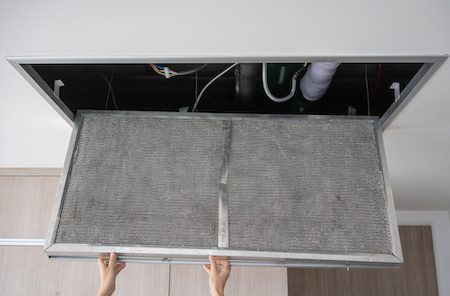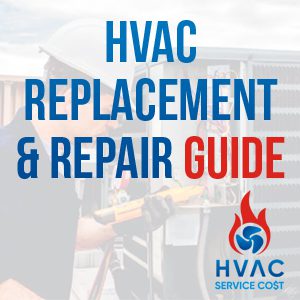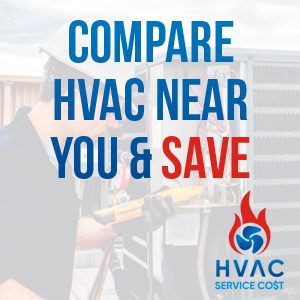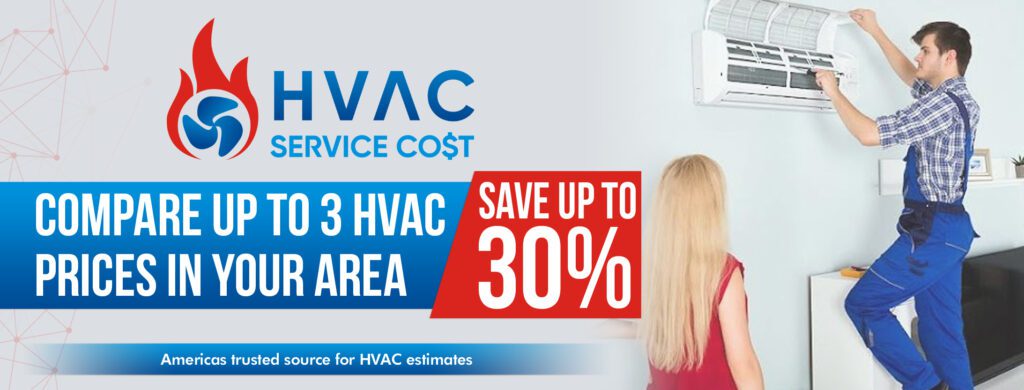
The Top 10 Possible Reasons Your Heating and Cooling Bill Has Increased
A sudden spike in your heating and cooling bill can be a source of great stress and confusion. Understanding the potential reasons behind this unexpected increase can help pinpoint issues, allowing for timely resolution and ultimately leading to lower bills. Below, we delve into the top ten possible reasons your heating and cooling bill may have unexpectedly increased, including insight into HVAC repairs or problems that could be affecting this.
COMPARE QUOTES NOW1. Aging HVAC System
As your HVAC system ages, its efficiency can decline significantly, especially if it hasn’t been properly maintained. Older systems have to work harder to maintain a comfortable temperature, leading to higher energy bills.
An aging HVAC system is not just a relic of your property, but a possible silent consumer of unnecessary energy and costs. It’s paramount to understand the indicators of an aging system and grasp when it might be time to consider a replacement.
How to Identify an Aging HVAC System:
- Constant Repairs:
- Frequent and escalating repair needs are a clear sign your HVAC system is in its twilight years. If you find yourself repeatedly calling for service, it may be more cost-effective to replace the system.
- Increased Energy Bills:
- An unexpected surge in your energy bills can signify that your HVAC system is losing its efficiency and is having to work harder to maintain the desired indoor climate.
- Inconsistent Temperatures:
- If your HVAC system is struggling to maintain consistent temperatures throughout your home or is cycling on and off frequently, it could be an indication that it’s time for an HVAC replacement.
- Unusual Noises or Odors:
- Odd sounds or smells emanating from your HVAC system can also be a warning sign that it’s nearing the end of its lifespan.
- Age of the System:
- Generally, HVAC systems have a lifespan of around 15-20 years. If your system is approaching or has surpassed this age range, it might be time to consider a replacement.

Life Expectancy of HVAC Systems:
Typically, HVAC systems last as follows:
- Furnaces: 15-20 years
- Air Conditioners: 10-15 years
- Heat Pumps: 10-15 years
- Boilers: 15-30 years
Every system is unique, and the lifespan can be influenced by factors such as maintenance, usage, and the quality of the installation.
Planning for Replacement:
To avoid the inconvenience of your HVAC system breaking down unexpectedly, it’s advisable to start planning for a replacement as it nears the end of its expected lifespan. Conducting research, setting a budget, and consulting with HVAC professionals in advance can ease the transition and ensure that your new system is more energy-efficient, leading to enhanced comfort and lower energy bills.
COMPARE QUOTES NOW2. Faulty Thermostat
A malfunctioning thermostat can cause your HVAC system to run excessively, leading to a spike in your energy bills. Ensure your thermostat is working correctly and is set to an economical temperature.
What is a Faulty Thermostat?
A faulty thermostat can no longer accurately regulate the temperature in your home, leading to discomfort and increased energy consumption. It can fail to respond to your settings, deliver incorrect temperature readings, or inconsistently control your HVAC system, causing it to cycle on and off irregularly.
Warning Signs of a Faulty Thermostat:
- Unresponsive Controls:
- If adjusting the settings on your thermostat doesn’t result in any changes to your indoor climate, it could be malfunctioning.
- Mismatched Temperature Readings:
- When the temperature reading on your thermostat doesn’t match the actual feel of your home, it might not be accurately sensing and regulating the temperature.
- Frequent Cycling:
- A faulty thermostat can cause your HVAC system to turn on and off more frequently than necessary, leading to inefficiency and wear and tear on the system.
- Failure to Start HVAC System:
- If your HVAC system doesn’t turn on, or there’s a significant delay, the thermostat might be unable to send the necessary signals to initiate operation.
- Unexplained Spike in Energy Bills:
- A sudden increase in your heating or cooling bills without a corresponding change in usage could indicate that your thermostat is not effectively regulating your HVAC system.
Dealing with a Faulty Thermostat:
If you suspect a faulty thermostat, consider performing basic troubleshooting, such as checking the batteries, ensuring the device is clean and free of dust, and verifying that it’s level and securely connected. If issues persist, seeking assistance from an HVAC professional is essential to diagnose and resolve the problem, whether it entails repairing or replacing the thermostat. Proper functioning of the thermostat is paramount to maintaining an efficient, cost-effective, and comfortable home environment.



3. Air Leaks
Cracks or holes in your home’s doors, windows, or insulation can let conditioned air escape, forcing your HVAC system to work harder to maintain the desired temperature inside your home.
COMPARE QUOTES NOW4. Dirty or Clogged Filters
Dirty or clogged filters restrict airflow, making your HVAC system work overtime to heat or cool your home, which in turn can increase your energy bills. Regularly changing or cleaning your filters can help avoid this problem.
Lifespan of Air Filters:
Typically, standard air filters should be changed every 90 days. However, this duration can vary based on the filter type and usage. High-efficiency air filters may have a longer lifespan, but they still require regular checks to ensure they are functioning correctly.
How Often Should Filters Be Changed?
- Standard Recommendations:
- For average-sized homes with no pets, changing filters every 90 days is advisable.
- If you have a pet, consider replacing your filter every 60 days to ensure optimal air quality and HVAC efficiency.
- For homes with multiple pets or individuals with allergies, changing the filter every 20-45 days is recommended.
- Assessing Filter Condition:
- Regardless of these general guidelines, regularly assess your air filter’s condition. If it appears dirty, clogged, or damaged before the expected replacement time, change it immediately.
Consequences of Not Changing Filters:
- Reduced Airflow:
- Dirty or clogged filters can obstruct airflow, forcing your HVAC system to work harder. This extra effort can increase your energy bills and potentially cause damage to your HVAC system.
- Decreased Efficiency:
- Accumulated dirt and debris can cause your system to work less efficiently, leading to uneven cooling or heating and increased energy consumption.
- Impaired Air Quality:
- Overused filters cannot effectively remove pollutants from the air, impacting indoor air quality and potentially affecting respiratory health.
Solutions and Prevention:
- Regular Maintenance:
- Consistently check and replace your air filters based on usage and condition.
- Upgrade to Higher Efficiency Filters:
- Consider using high-efficiency air filters that require less frequent replacement and provide superior filtration.
Timely replacement of air filters is a simple but crucial step in maintaining an efficient HVAC system and avoiding unexpected hikes in your heating and cooling bills. Properly maintained filters contribute to optimal system operation, healthier indoor air quality, and overall energy cost savings.



5. Duct Issues
Leaky or uninsulated ducts can lose a significant amount of conditioned air before it reaches the living spaces in your home, causing your HVAC system to work harder and increasing your energy costs.
6. Inefficient Equipment
HVAC equipment that’s not operating efficiently due to lack of maintenance or the need for repairs can lead to increased energy usage and higher bills.
7. Unaddressed Repairs
Ignoring minor issues with your HVAC system might seem cost-effective in the short term, but it’s a decision that can heavily impact your heating and cooling bills in the long run. Unaddressed repairs can cause your system to work overtime, leading to inefficiency and higher energy consumption. Here’s a look at some common overlooked repairs that could be stealthily inflating your bills.
COMPARE QUOTES NOWLeaking Ducts:
Leaks or holes in your ductwork can let conditioned air escape before it reaches your living spaces, making your system work harder to achieve the desired temperature. Addressing this issue promptly by sealing leaks can make a significant difference in your energy bills.
Malfunctioning Condenser Coils:
The condenser coil in your air conditioner plays a crucial role in expelling heat from your home. If it’s malfunctioning or dirty, your system will not work efficiently, leading to increased running times and higher bills. Regular maintenance can prevent this issue.
Refrigerant Leaks:
If your air conditioner is low on refrigerant, it can’t effectively cool your home, leading to longer running times and increased energy costs. Fixing leaks and maintaining the correct refrigerant charge is essential for optimal efficiency.
Broken Thermostat Sensors:
A broken thermostat sensor can cause your HVAC system to run erratically, leading to unnecessary energy use. Ensure your thermostat is functioning correctly to keep your system running efficiently.
Worn-out Components:
Old or worn-out components can cause your HVAC system to work harder, leading to inefficiency and higher energy bills. Regular check-ups can help identify and replace worn parts before they cause a spike in your energy consumption.


Addressing These Repairs:
- Regular Inspections: Conduct regular inspections of your HVAC system to identify and address issues promptly. Early detection can prevent small problems from turning into costly repairs and high energy bills.
- Hire Professional Services: Professional HVAC technicians can thoroughly assess your system, identify hidden issues, and perform necessary repairs, ensuring your system operates efficiently and keeping your energy bills in check.
- Invest in Maintenance: Prioritize preventative maintenance to ensure your HVAC system is always in top condition, minimizing the risk of unexpected issues and high energy bills.
Do not overlook the small issues. Regular maintenance, timely repairs, and professional assessments can keep your HVAC system running efficiently, ensuring consistent temperatures, and manageable energy bills, safeguarding both your comfort and your wallet.
COMPARE QUOTES NOW8. Changing Weather
Extreme weather conditions can also cause your HVAC system to work harder, leading to higher energy consumption and increased bills.
9. Increased Energy Rates
Sometimes the increase in your energy bills can be attributed to a hike in energy rates by your utility company.
10. Incorrect System Size
An often overlooked aspect that can significantly affect your heating and cooling bills is the size of your HVAC system. An improperly sized HVAC system will not only fail to maintain the desired comfort levels in your home, but it will also lead to higher energy costs and excess wear and tear on the system. Below are insights and tips to ensure you choose the right HVAC system size for your home.
Understand the Importance of Proper Sizing:
A system that is too large will cycle on and off frequently, leading to increased energy consumption and wear. Conversely, a too-small system will constantly run as it struggles to reach the desired temperature, also leading to excessive energy use and system strain.
Conduct a Load Calculation:
A professional HVAC contractor can perform a load calculation on your home. This calculation considers factors like the size and layout of your home, insulation levels, window type and location, and many others to determine the correct HVAC system size for your needs. Avoid using a rule-of-thumb method as each home has unique heating and cooling requirements.
COMPARE QUOTES NOWConsider the Different Types of HVAC Systems:
Various types of HVAC systems are available, each with its own size specifications and suitability for different home sizes and types. Research the different systems to understand which one aligns with your home’s needs.
Factor in Future Home Improvements:
If you plan on making any additions to your home, ensure your new HVAC system can handle the increased load. It might be worth investing in a slightly larger system if you intend to expand your living space in the future.
Work with a Reputable HVAC Contractor:
A knowledgeable and experienced HVAC contractor will guide you in selecting the right size HVAC system for your home. They will consider all aspects of your home and lifestyle to recommend a system that will efficiently meet your heating and cooling needs.



Choosing the right HVAC system size is essential for maintaining comfort in your home and ensuring energy efficiency. By following the above steps and working with a professional, you can select an HVAC system that will serve you effectively for years, keeping your energy bills in check and avoiding unnecessary strain on the system components.
COMPARE QUOTES NOWHVAC Repairs and Maintenance
Proactively addressing HVAC repairs and ensuring regular maintenance can help in keeping your energy bills in check. Some HVAC related solutions include:
- Regular Maintenance: Schedule regular maintenance checks with a professional to ensure your system is operating efficiently.
- Prompt Repairs: Don’t delay repairs as unaddressed issues can worsen over time, leading to more energy consumption and higher bills.
- Upgrade Your System: If your system is old and inefficient, consider upgrading to a more energy-efficient model.
- Seal Leaks: Ensure all air leaks in your home are sealed to prevent loss of conditioned air.
- Proper Insulation: Adequately insulate your home to maintain the desired temperature with less energy consumption.
Identifying and addressing the potential reasons behind increased heating and cooling bills is crucial for maintaining an efficient HVAC system and avoiding unnecessary costs. Regular maintenance, prompt repairs, and attention to energy efficiency can help keep your HVAC system in top shape, ensuring comfort and reasonable energy bills for your home.



HVAC System Repairs and Replacement Costs
Realizing that your HVAC system might need repairs or a full replacement is a significant concern for many homeowners, primarily due to the potential costs involved. Understanding these costs and the long-term savings of an efficient HVAC system can help you make an informed decision.
COMPARE QUOTES NOWRepair Costs:
HVAC repair costs can vary substantially based on the specific issue and the make and model of your system. On average, homeowners may spend anywhere from $150 to $500 for common HVAC repairs. Some specific repairs, such as fixing a refrigerant leak, can cost upwards of $1,000.
Replacement Costs:
The cost of replacing an HVAC system can range from $4,000 to $12,000, depending on various factors including the size and type of the system and labor charges in your area. Higher-end systems will come with a steeper price tag, but they also tend to offer greater energy efficiency and more advanced features, potentially saving you money in the long term.



Long-Term Savings:
- Energy Efficiency:
- Newer HVAC systems are designed to be more energy-efficient, which translates to lower energy bills. Over time, the savings on your energy bills can significantly offset the initial investment in a new system.
- Fewer Repairs:
- A new HVAC system will likely require fewer repairs compared to an old, worn-out system. Avoiding these additional repair costs can result in more savings over time.
- Increased Home Value:
- Investing in a new HVAC system can enhance the value of your home, which is beneficial if you plan on selling in the near future. Buyers often prioritize homes with reliable and efficient heating and cooling systems.
- Comfort and Consistency:
- Modern HVAC systems provide better temperature control and consistency, enhancing comfort levels in your home. This improved comfort is not a monetary saving, but it certainly adds to the quality of life.
- Potential Rebates or Tax Credits:
- Some areas offer rebates or tax credits for installing energy-efficient HVAC systems, providing further financial incentive for upgrading your system.
While the immediate costs of repairing or replacing an HVAC system can be high, it’s crucial to consider the long-term financial benefits. A new, efficient HVAC system can lead to substantial savings on energy bills, fewer repair costs, increased home value, and enhanced comfort in your home, making it a wise investment for the future.
COMPARE QUOTES NOW


Leave a Reply